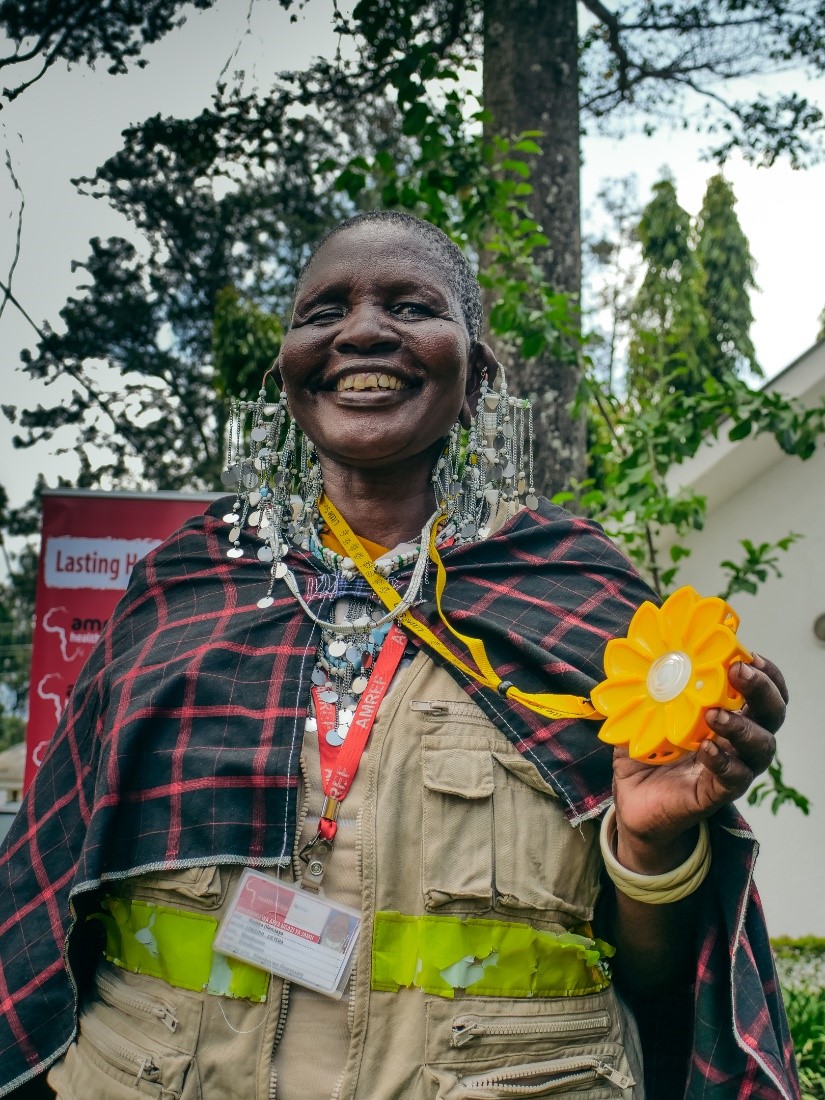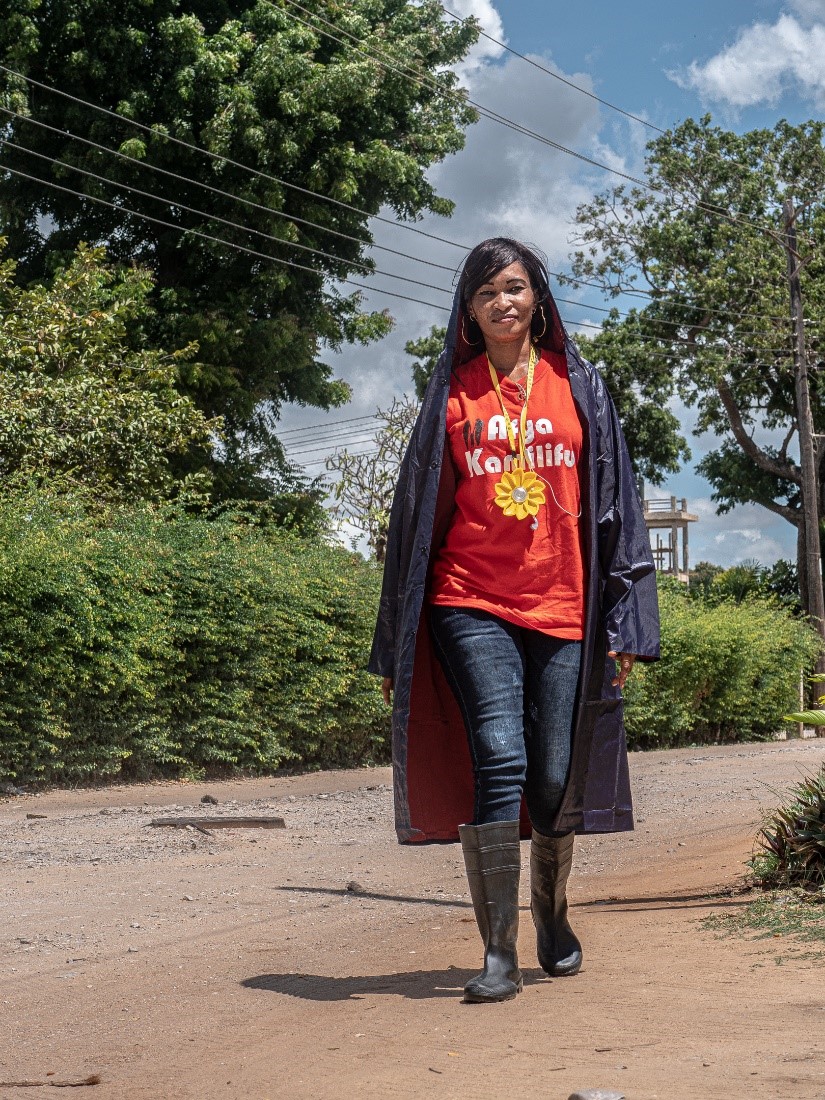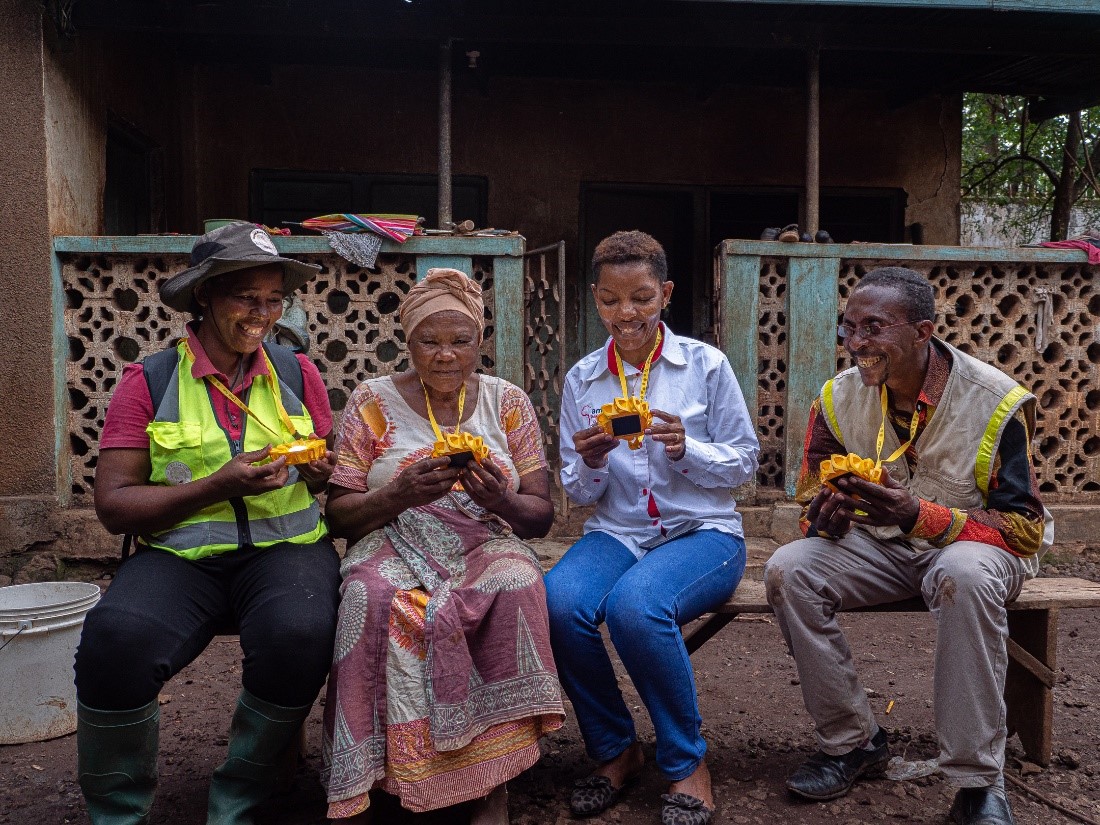Did you know that one in two living in Africa have no access to decent healthcare? At Little Sun, we believe that every individual, no matter where they live, has the right to safe and affordable health care.
That’s why for the last few years, we’ve been focused on powering Community Health Workers with our Little Sun lamp and charger to help them provide better healthcare and more accurate diagnoses for the millions of people living beyond the electrical grid, particularly women and girls. In 2020 alone, Little Sun joined those working at the forefront of the COVID-19 response by distributing 5,000 solar powered phone chargers.
Every time Neema Olenaaya Mollel waves her family goodbye and goes to work, she takes a calculated risk. As a Community Health Worker of Longido District Council in Arusha, her job is to not only provide health education but to make door-to-door visits and identify early symptoms of diseases, such as malaria, tuberculosis, and HIV to prevent outbreaks. So, when COVID-19 hit, Neema and her colleagues had two jobs: to save lives from the pandemic and to protect huge gains already made against other infectious diseases.
But there’s another phenomenon that made Neema’s work crucial for the health and wellbeing of her community. In Tanzania as well as all over the world, many people are afraid to visit health facilities because of COVID-19. This has put Neema, more than ever before, front and center filling the gaps. The trust built over the years in the community by grassroots health workers is critical to reaching people in need right now, with lifesaving tests, prevention, and treatment.

Knowing all that, Little Sun is working with registered charity Amref Health Africa to support their community-based disease surveillance interventions for Community Health Workers.
“Providing safe and reliable healthcare is crucial for protecting and empowering people living without electricity in Africa. We’ve learned from Community Health Workers across Tanzania that a powerful, portable solar lamp is a game changer — it makes them feel safe while going back home during the night and it helps them communicate better with their community. This is why we are very excited to partner with Amref Health Africa to make sure the people they support at community level have the energy they need to provide important health care work, especially now during the pandemic,” says Nabil Ishak, Little Sun’s Director in Africa.
Thanks to a donation from an anonymous foundation, Little Sun provided Community Health Workers with 594 solar chargers and 432 solar lamps in Tanzania. From March 28th to April 30th, Amref Health Africa distributed the Little Sun devices in five regions of Tanzania: Arusha, Kilimanjaro, Tanga, Simiyu, and Shinyanga.
“This little lamp is going to be a big lifesaver for me, especially when people reach out for help during the night hours,”
explains Halima Salim Magongo who works as a peer educator in HIV Testing Services (HTS). “It will not only enable me to have better communication with the community, but will also bring me well-needed peace of mind when I’m going back home in the dark.”

The young woman works In another part of Tanzania, Tanga and her job is to prevent and reduce high-risk sexual behavior amongst young groups by providing accurate information about HIV/AIDS. One of her tasks is to organize sensitization campaigns and testing which mainly happen during the night. Halima often works with vulnerable groups at increased risk of HIV, such as female sex workers, who feel more comfortable attending the events during the evening hours.
“I’m very happy to have this portable light as it will ease my work enormously. I can carry it everywhere and it will help me build trust and run my campaigns way more smoothly,”
explains Halima who, in a month, conducts roughly 12 outreach sessions during the day and 4 outreach sessions in the late hours.

Nabila, a colleague of hers, receives the Little Sun lamp with a huge smile. She likes how small it is which will help her bring it everywhere she goes. “Get tested, know your status, and get the proper treatment,” says the young woman who works as a peer educator for Amref’s Afya Kamilifu project in the Tanga region. What she likes about her job is the opportunity she has to educate her fellow vulnerable women and girls on issues around HIV, condom use and supply, and STI education and screening.
“The Little Sun lamp will help me give light to so many people from my community.”
People like Neema, Halima, and Nabila are playing a key role in improving the health and wellbeing of their communities. Help us provide sustainable solar lighting to Community Health Workers by donating today!



